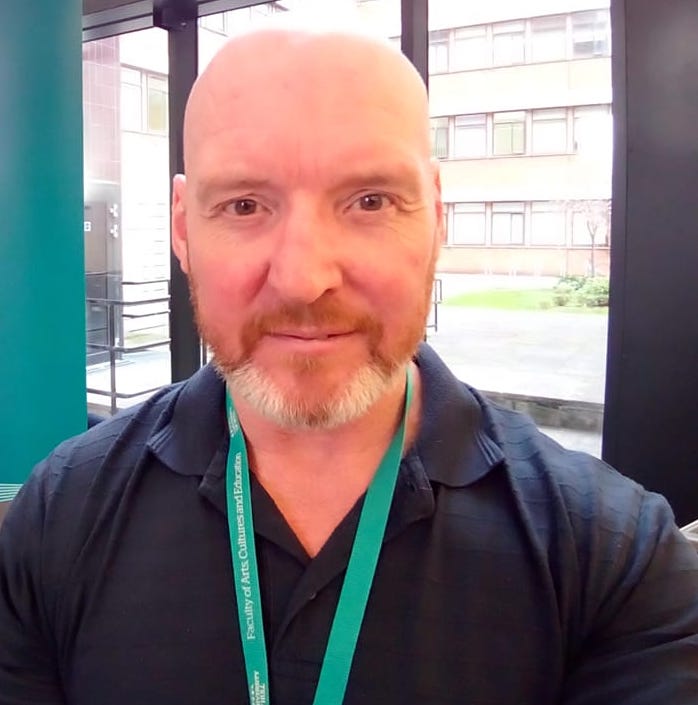Life After Prison: Liminality, identity and who gets to decide how 'moving on' looks like

UCC Department of Sociology and Criminology
together with Cork Alliance Centre
warmly welcome you to
Dr David Honeywell (Arden University, UK)
Life after prison: liminality, identity and who gets to decide how 'moving on' looks like
Public seminar followed by discussion, informal networking and light refreshments
When: Thursday, 2nd of June, 16:00-17:30
Where: University College Cork, Student Hub 4th Floor Dr. Dora Allman Room
Please RSVP by Monday,30th of May 2022 to gemmamccarthy@ucc.ie
Abstract
Desistance is often viewed as being a complete dis-association from ones past identities as we develop new law abiding identities. However, for some, their past identities are essential to informing their current and future identities. As a convict criminologist, drawing on my past is an essential aspect to my academic profile. You could argue that we (convict criminologists) are inadvertently forced into this dilemma because were we not to share our pasts - would we still have a unique standing in criminology? This creates a place and space of liminality and rather than just being viewed as an 'ex-prisoner' you want to be viewed as an employee, a parent, a partner etc. but who really decides when your new identity can become your master status?
Many will accept you can change but there will always be some who hold the view 'once a criminal always a criminal' and can't or refuse to see the bigger picture or the 'real you'. So who really decides? Desistance scholars argue that successful desistance happens from within, which is true but only to a point because with the best will in the world and despite proving you no longer offend and have made many achievements over several years, desisters have to depend on society's acceptance. We have to ask employers to employ us, colleges to enroll us and people to befriend us. With this in mind then I would argue that desistance should not be so focused on individual desisters, but also on wider society, by educating employers about how employing ex-offenders can be of huge benefit to both parties; to educate universities and colleges not to use a criminal record as a barrier; and society too, so that no one should be discriminated against because of their past.
Dr. David Honeywell's Bio
Dr David Honeywell is a lecturer in criminology at Arden University. He is also currently a Co-Investigator for large scale study funded by the NHIR (National Institute for Health and Care Research) working on the PROSPECT programme (Prevention of suicide behaviour in prison: enhancing access to therapy).
David began his academic career in 2013 at the University of York where he worked as an Associate Criminology Lecturer alongside studying for a PhD. He has since taught criminology at Leeds Beckett University and the universities of Durham and Hull. In 2018, he completed his PhD in sociology about ex-prisoners and the transformation of self through higher education which was inspired by his own personal journey as an ex- prisoner who escaped a dysfunctional life through education later in life. While in prison in the 1990's he gained an Open University qualification which later led to degrees in criminology, social research methods and sociology. David has published extensively on his own lived experiences and in relation to his expertise of desistance theory. In 2012 he self published his autobiography Never Ending Circles and has since gone on to publish a short monograph The Ambiguities of Desistance: Ex-offenders, Higher Education and the Desistance Journey and is now contracted by Routledge to publish his second monograph Living Desistance: Breaking the Cycle.
Department of Sociology & Criminology
Socheolaíocht & Coireolaíocht
Contact us
Askive, Donovan's Road, University College Cork, Cork, Ireland, T12 DT02
